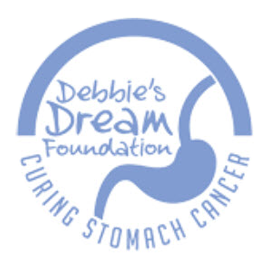Debbie’s Dream Foundation: Curing Stomach Cancer shared on LinkedIn:
“New Interview Alert!
Our CEO, Andrea Eidelman, sat down with OncoDaily’s Editor-in-Chief, Gevorg Tamamyan, for a powerful conversation about the mission of Debbie’s Dream Foundation: Curing Stomach Cancer (DDF).
In this interview, Andrea shares her inspiring journey from advocating for underprivileged children as an attorney to leading DDF in the global fight against gastric cancer.
Tune in for details on our recent expansion into Japan, upcoming events, and how we’re supporting patients and caregivers every step of the way.
Watch the full interview and learn about our mission to raise awareness, fund research, and educate the stomach cancer community on crucial topics like biomarkers!”
Gastric cancer (GC) is characterized with differentiation disorders, the precise mechanisms of which remain unknown. Our previous study showed that PHF10 exhibits oncogenic properties in GC, with its histological presentation indicating a potential role in the modulation of differentiation disorders in GC. This study reveals a significant upregulation of PHF10 in GC tissues, showing a negative correlation with differentiation level. PHF10 was found to impede the differentiation of GC cells while promoting their stemness properties. This was attributed to the formation of a positive feedback loop between PHF10 and E2F1, resulting in dysregulated expression levels in GC. Additionally, PHF10 was found to mediate the transcriptional repression of the target gene DUSP5 in GC cells through the assembly of the SWI/SNF complex, leading to an elevation in pERK1/2 levels.
Cancer With the Help of an AACR Grant
Valerie O’Brien, PhD, is using her microbiology expertise to model and study gastric cancer development with early support from a Debbie’s Dream Foundation-AACR grant.
As a graduate student at Washington University in St. Louis, Valerie O’Brien, PhD, studied chronic bacterial infections. Then, an opportunity to donate bone marrow to a young boy with leukemia motivated her to shift her focus.
“That got me interested in cancer because I could see how it was such an important disease worldwide,” she recalled. “I was looking for a way to combine [my] expertise with cancer.”
Dr. O’Brien chose to pursue a postdoctoral fellowship in the lab of Nina Salama, PhD, a professor, senior vice president of education, and the Dr. Penny E. Petersen Memorial Chair for Lymphoma Research at the Fred Hutchinson Cancer Center in Seattle, who studies a bacterium called Helicobacter pylori (H. pylori), which infects the inner lining of the stomach. According to the National Cancer Institute (NCI), the bacterium can survive for long periods of time by neutralizing stomach acid, burrowing into the mucus that coats the inside of the stomach, and possibly blocking immune responses.
Combination therapy with evorpacept (ALX148), trastuzumab (Herceptin), ramucirumab (Cyramza), and paclitaxel (TRP) meaningfully improved overall response rate (ORR) and duration of response (DOR) compared with TRP alone among those with previously treated HER2-positive advanced gastric cancer or gastroesophageal junction (GEJ) cancer, according to a press release on findings from the phase 2 ASPEN-06 trial (NCT05002127).1
RAHWAY, N.J., Nov. 16, 2023 – Merck (NYSE: MRK), known as MSD outside of the United States and Canada, today announced that the U.S. Food and Drug Administration (FDA) has approved KEYTRUDA, Merck’s anti-PD-1 therapy, in combination with fluoropyrimidine- and
platinum-containing chemotherapy, for the first-line treatment of adults with locally advanced unresectable or metastatic human epidermal growth factor receptor 2 (HER2)-negative gastric or gastroesophageal junction (GEJ) adenocarcinoma.
(WENY) — November marks national stomach cancer awareness month with new cases affecting roughly 15,000 men and 10,000 women in 2023. The most common type of stomach cancer is Adenocarcinoma however there are other types of ways to identify the disease.
